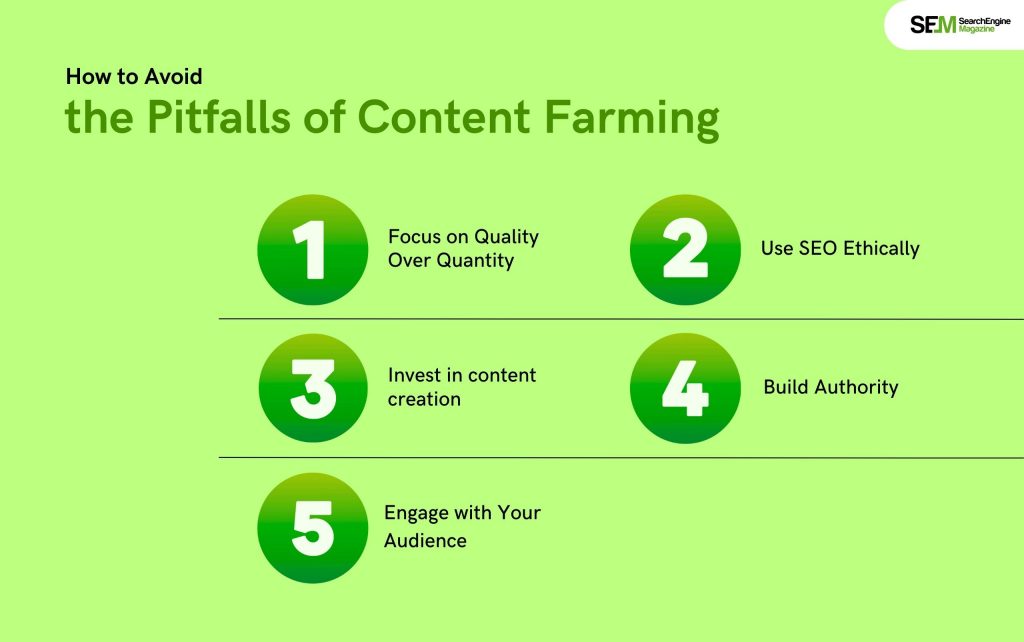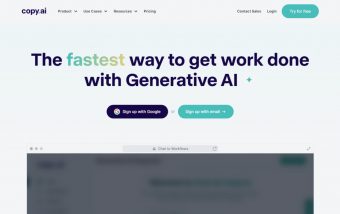Ahrefs Vs Semrush: Which Is The Better SEO Tool In 2025?
Apr 08, 2025

Apr 08, 2025

Mar 29, 2025

Mar 29, 2025

Mar 29, 2025

Mar 29, 2025

Mar 29, 2025

Mar 27, 2025

Mar 27, 2025
Sorry, but nothing matched your search "". Please try again with some different keywords.


Content has grown dramatically in the digital age, but new challenges emerge in how information is produced, consumed, and valued.
One practice that has generated much debate is content farming. Though it does allow for mass production of articles and pages, it raises complex issues for SEO, readers, and content creators.
Understanding what content farming is, its impact, and how to avoid it can help you create meaningful, engaging, and high-quality content.

Content farming is creating a huge number of low-quality articles that are generated to create traffic and search engine ranking. Content farms often put quantity over quality, creating articles full of keywords but lacking in value.
Articles created with content farming are usually done to rank highly in search engine results for trending topics or high-volume keywords rather than having meaningful insights or expert opinions.
Content farms usually rely on automated tools or outsourcing for the mass production of articles, typically on many topics. This approach, although bringing traffic, normally leads to shallow, unoriginal content that has no value for the readers.

If you want to know about the impact of content farming on digital media, let me share with you some of it. It is also important to consider the aspects of content farming with regards to the way digital marketing is directly influenced.
Content farming can also be detrimental to the long-term SEO. It is while this can bring in a high traffic, because of the massive content written towards popular search terms, Google is now getting smarter with finding out low-quality content.
Panda and BERT updates are specifically to focus on high-quality research work and user-friendly content. Content farming strategies focus on quick fixes like keyword stuffing and content spamming.
Penalties often arise, making such sites less visible in search results. Content farming SEO built on it eventually becomes unsustainable. Its contents will rank for a short time, but eventually, it will get pushed down to favor authoritative and quality-driven websites.
For readers, content farming leads to poor user experience. Articles may provide little meaningful information because of the overwhelming focus on keyword optimization over substance.
Many content farm articles are generic and often rehashed from other sources, leaving readers frustrated as they search for genuinely helpful or informative content. This undermines trust in the sources and discourages return visits to such sites.
Also, users are more likely to read clickbait headlines and superficial content made simply with a click, which cheapens the content on the Internet.
Content farming can lead content creators to a race to the bottom. Writers are mostly compelled to produce large amounts of content quickly, often without having the time and resources to research or hone their work.
This will lead to burnout and dissatisfaction as they may be compensated based on volume rather than quality.
In addition, dependency on SEO tricks and short-term ranking strategies can also affect the creative process because content creators may be forced to chase traffic instead of creating valuable, original content. This can impact the integrity of the work and the reputation of the creators.

Let me discuss with you the benefits and drawbacks of content farming. You have to learn more about these aspects so that you can evaluate the approach and its impact on overall digital marketing.
First, let us start with the benefits. I feel, it is important that content farming must be evaluated based on the way digitalization of content happens.

Content farming will face even more critical challenges as AI continues its development. AI can produce a huge number of texts in a small amount of time, giving content farms the ability to produce more articles.
However, AI also has its risks. While content generated by AI may speed up efficiency, it would also continue to produce low quality and repetitive content that lacks creative and nuanced ideas human writers bring about.
But on the other hand, AI presents an opportunity for improving the quality of contents.
AI content optimization tools such as grammar checker keyword research, readability analysis which help content developers increase the worth of their products. Besides, Google, and other search engines are starting to use AI more and more to evaluate quality content.
What this means is that the more time passes, content farming will even become an ineffective activity. The future of content farming is to be more personalized, high-quality content that engages the readers rather than just clicks.

There are several pitfalls when it comes to content farming. I am discussing this aspect of content with regards to evaluation
Avert using clickbait headlines since they may not relate to what one may find inside. Clickbait headlines can be hazardous to your reputation and send readers away.
By taking a few of these steps you would then stay away from the pitfalls that content farming poses and help create value for readers along with sustainability in your digital presence.
Content farming can be perceived as a short-cut and easy way to drive traffic. Although, the long-term implications for SEO, readers, and content creators are generally negative.
While it works well in the short term, quality is compromised, resulting in lower engagement, unhappy readers, and even search engine penalties.
The future of content farming is unlikely to remain effective as the digital landscape continues to evolve, particularly with AI.
To succeed in the digital age, content creators and brands must focus on creating high-quality original content. This builds trust and engagement for audiences while contributing to long-term success.
You May Like To Read This:
Nabamita Sinha loves to write about lifestyle and pop-culture. In her free time, she loves to watch movies and TV series and experiment with food. Her favorite niche topics are fashion, lifestyle, travel, and gossip content. Her style of writing is creative and quirky.
View all Posts
Ahrefs Vs Semrush: Which Is The Better SEO To...
Apr 08, 2025
How Data-Driven Hiring Reduces Costs and Impr...
Mar 29, 2025
Why Headless CMS Works Well for EdTech Startu...
Mar 29, 2025
Building Topical Authority to Excel in Search...
Mar 29, 2025
The Impact of Professional Recruitment Servic...
Mar 29, 2025

